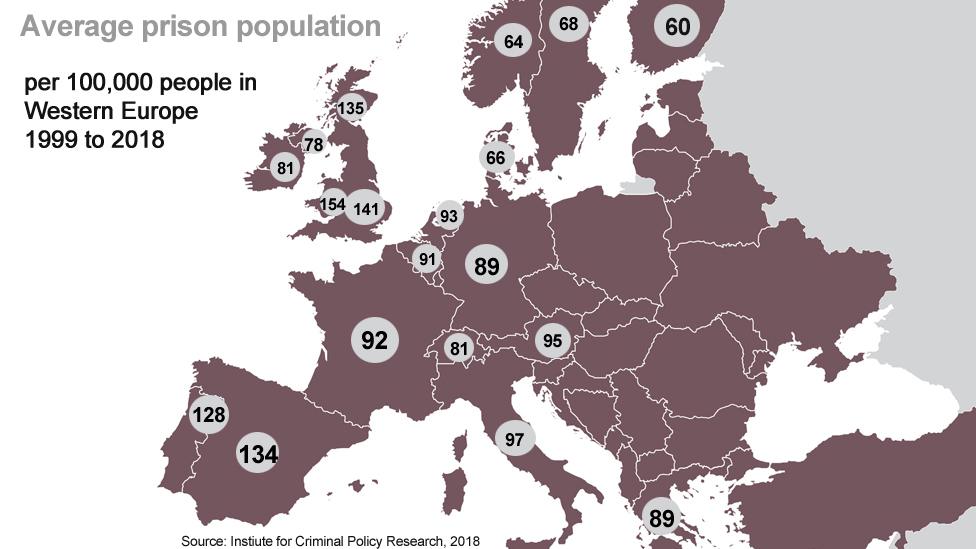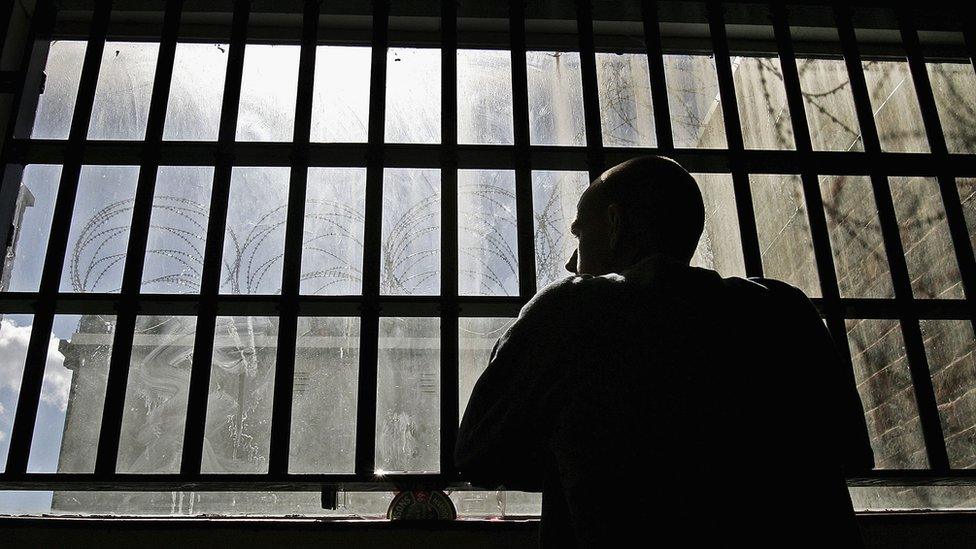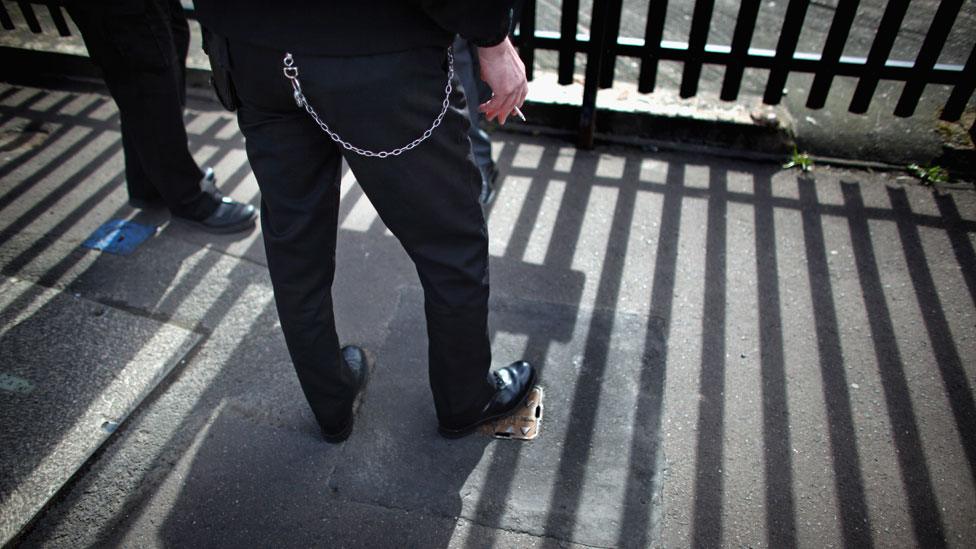Wales has 'highest imprisonment rate' in western Europe
- Published
- comments

Wales has the highest imprisonment rate in western Europe, new research has claimed.
The Wales Governance Centre's analysis of official figures also reveals average custody rates are higher than in England for a number of different groups and offences.
In particular, non-white Welsh prisoners are overrepresented in prison.
Report author Dr Robert Jones said this was a major cause of concern.
"Equally disturbing is that such an alarming trend has emerged in Wales without detection," his report concluded.
"This undoubtedly calls into question the role being played by UK justice agencies in Wales as well as civil society organisations and academic researchers."
This is the first time Wales has been analysed separately and Dr Jones said wider research was now needed.
Sentencing figures show there were 154 prisoners for every 100,000 people in Wales, a higher proportion than England - which has the second-highest imprisonment rate.
More people were being jailed in Wales despite a lower crime rate than in England every year between 2013 and 2017.
The Sentencing Council downplayed the likelihood that meaningful differences exist between England and Wales in their recent evidence, external to the Commission on Justice in Wales,, external saying guidelines "ensure a consistency of approach" regardless of location.
But Dr Jones, who is based at Cardiff University, said this was an area that could no longer be disregarded.

An average rate for the prison population in western European countries shows England, Scotland and Wales at the top
The report also shows:
The total number of prison sentences handed out in England dropped by 16% between 2010 and 2017; at the same time they rose by 0.3% in Wales
Immediate custodial sentences imposed by magistrates rose by 12% in Wales.
Women in Wales are more likely to receive short-term custodial sentences than men, with 78.6% jailed for less than 12 months, compared with 67% of men.
White offenders in Wales were given the lowest average immediate custodial sentence length in 2017 (13.2 months), while black offenders recorded the highest average sentence length (21.5 months), followed by Asian (19 months) and mixed race (17.7 months).
But Wales handed out shorter sentences to offenders than in England, with the average prison sentence being 13.4 months, compared with 17.2 months in England in 2017.
And a higher percentage of sentences of four years or more were also handed out in England.
Dr Jones added: "Gradually, a detailed picture is emerging of the justice system in Wales and how it is quite different to that of England.
"A thorough debate is needed on why these kinds of sentencing and custodial patterns occur in Wales and whether these are the outcomes that the UK and Welsh governments want to see from the criminal justice system."
The researchers obtained the figures from the Ministry of Justice (MoJ) under the Freedom of Information Act.
A spokesperson for the MoJ said prison would "continue to be the best place for serious offenders".
They said: "As we have said previously, the prison population is too high and we are exploring potential alternatives to custody - such as reducing the number of ineffective short sentences which provide little opportunity to rehabilitate offenders and fail to tackle reoffending."
Katy Hanson, managing director of Welch & Co, who works as a duty solicitor in Pembrokeshire, said: "Every court, wherever you are, has its own way of doing things and to a certain extent there are always going to be discrepancies, but I am surprised by these statistics.
"Courts do hand out shorter sentences and perhaps don't suspend sentences when they could.
"It's interesting that this has been released at a time when the government is looking at whether there's merit in scrapping short sentences. There's a lot of evidence that short-term sentences don't do that much to deter people offending."
She also questioned whether courts have fewer sentencing options.
"It feels as though probation have more courses and assistance available to those on probation in England, possibly because there are more defendants, so resources are being put there.
"That might make a difference because the courts there feel more can be done to assist people and prevent them reoffending."
Jane Hutt AM, deputy minister with a responsibility for crime and justice policy, said the report was very timely and would influence the Welsh Government's future work around offending, including a "distinct and different justice system" for female and youth offenders.
"Whilst justice remains a non-devolved function, work is under way to get the best possible solution for Wales," she added.
- Published9 January 2019

- Published12 January 2019

- Published25 August 2018

- Published13 August 2018
